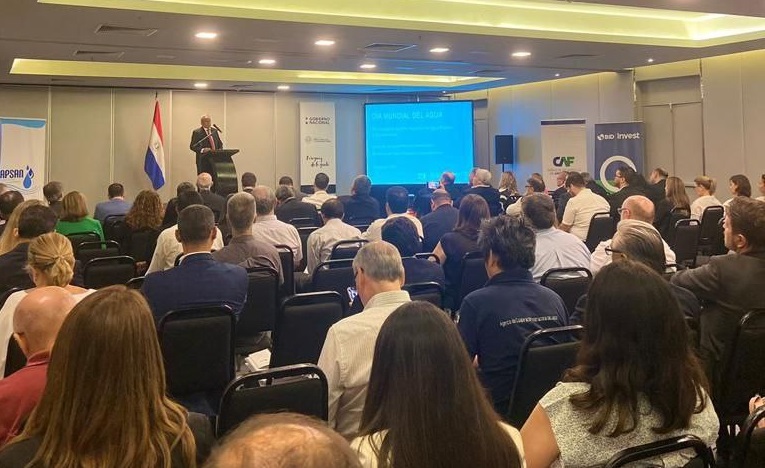Authorities highlighted the achievement obtained after the approval of the National Drinking Water and Sanitation Plan (PNAPS), which seeks to guarantee the right of access to drinking water to all inhabitants.
The Executive Branch approved by Decree No. 8939/2023 the update of the National Drinking Water and Sanitation Plan (PNAPS). This fact was highlighted today in a ceremony held in commemoration of Water Day.
This plan, which aims guarantee the right of access to drinking water and sanitation to all the inhabitants of our countryit’s a milestone within public governance policies of water resources in Paraguay.
It may interest you: Asunción has its second treatment plant
“Watch over the universalization of the provision of services and the sustainability of existing systems are priorities of this plan. Also, find that our health system is not threatened by the lack of a basic service such as sanitation”, affirmed Eng. Hugo Ruiz, director of the Directorate of Drinking Water and Sanitation (DAPSAN).
For his part, the Minister of Public Works, Rodolfo Segovia, welcomed the update of the PNAPS document and commented that currently Similar projects are in the National Congress for an approximate value of USD 600 million.
The updating of this document is supported by international cooperation organizations such as the Development Bank of Latin America (CAF), the Inter-American Development Bank (IDB), UNICEF, the World Bank and other members of civil society.
Also read: Route PY02: Detours apply for the construction of the bridge over the Ytu stream
He National Drinking Water and Sanitation Plan is he result of inter-institutional work between the relevant sectors of water and sanitation in our country. The document contemplates a diagnosis of the institutional framework of the drinking water and sanitation sector in terms of its governance, legal framework, financing, coverage, quality, gender perspective, service management, rates and other points.





